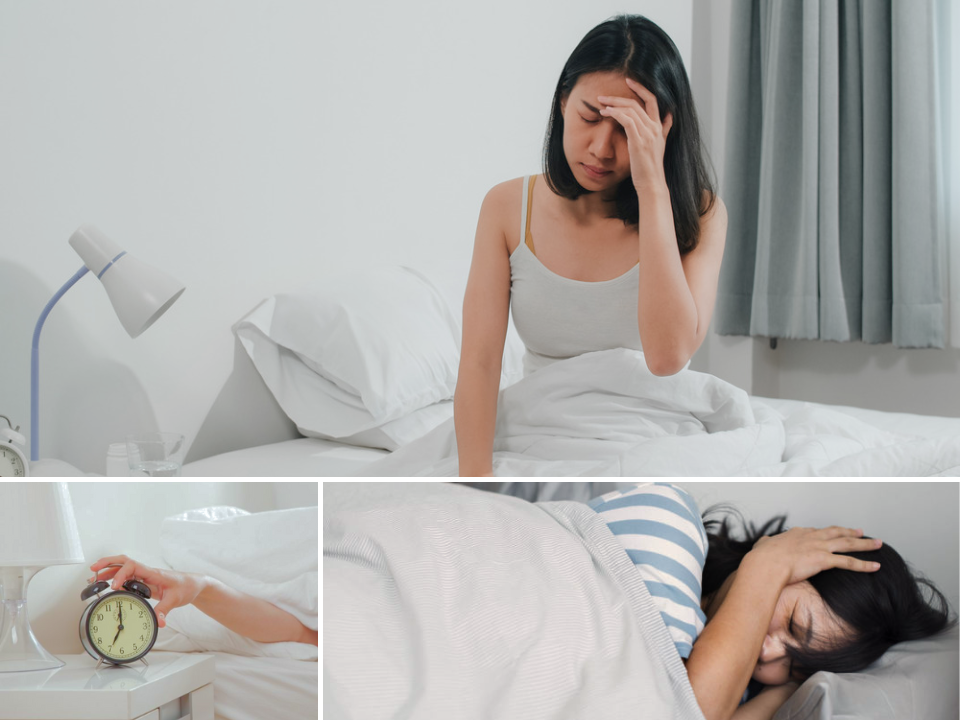
Getting a good quality of sleep is the main key to productivity, whether in school or the workplace. Yet, even for those who prioritize their nightly slumber and manage to secure a full eight hours, the question remains: why are we still tired? Sometimes, our daily routine can be one of the reasons that lead to sleep disorders.
Understanding The Reason Why We Still Feel Sleepy
Sleep contains two categories, which are rapid eye movement (REM) and non-REM sleep. Non-REM sleep has four stages, with each contributing to overall restoration and recovery. While during REM sleep, your brain is highly active, helping in cognitive function and memory consolidation.
Now, let’s learn about the various reasons for sleep disorders that can leave people feeling groggy despite getting enough sleep.
1. Stress & Mental Health

Image via Urban Institute
First and foremost, high levels of stress and poor mental health can be one of the main reasons for sleep disorders. Conditions like anxiety, depression, and chronic stress can keep your mind active and make it hard to relax into deep sleep. Addressing underlying mental health issues can be a crucial step towards improving your sleep quality.
There are ways to tackle stress, for your own good. When people get to manage stress and mental well-being, they are more likely to wake up feeling rested and fresh.
2. Distractive Environment

Image via CNN
Next, the distractive environment in your bedroom has a huge impact on your sleep. Factors such as noise, light, and temperature can all impact your ability to fall and stay asleep. A quiet, dark, and comfortable sleep space can help people wake up in the morning feeling more refreshed and energized. By creating a sleep-friendly environment, it can greatly enhance your rest.
3. Eat Close To Bedtime

Image via Business Insider
The next point is eating too much close to bedtime can negatively impact your sleep quality. Having heavy meals and high-fat foods can lead to discomfort and indigestion, making it harder to fall asleep.
What can people do to avoid this problem is try to finish eating at least 2 to 3 hours before bedtime. It will allow your body to get enough time to digest food properly. This can contribute to better sleep quality, ensuring you wake up feeling better.
4. Drink Caffeine & Alcohol Before Sleep


Images via HuffPost UK & Mattress Advisor
Therefore, many people choose a glass of wine or coffee to unwind. But, drinking it before bedtime can be a reason for sleep disorders. For your information, caffeine is a booster that can keep people awake, making it harder to fall and stay asleep. Meanwhile, alcohol can disrupt your sleep cycles. It prevents people from reaching deep sleep.
Staying hydrated is essential, but too much liquid before bed may lead to midnight bathroom trips, disrupting your sleep cycle. So, please avoid this.
5. Sleep Quantity Over Quality

Image via Global Times
Lastly, the quality of sleep is more important than its duration. People usually mistaken this and think that sleeping longer is better. But, just imagine, doesn’t getting 8 hours of poor sleep can be less refreshing than 6 hours of deep and uninterrupted rest?
Try to focus on achieving deep sleep rather than just chasing the clock for more hours. After all, it is not just about the hours you clock. It is about the depth and restorative nature of your sleep. Prioritizing sleep quality will leave you feeling more refreshed and energetic when you wake up.
Overall, it is essential to recognize that sleep quality is just as important as sleep quantity. It is time to assess various aspects of your life, from mental health to lifestyle choices, and take steps to improve your sleep quality. Prioritizing sleep is not a sign of laziness, but an investment in your overall well-being and productivity.










